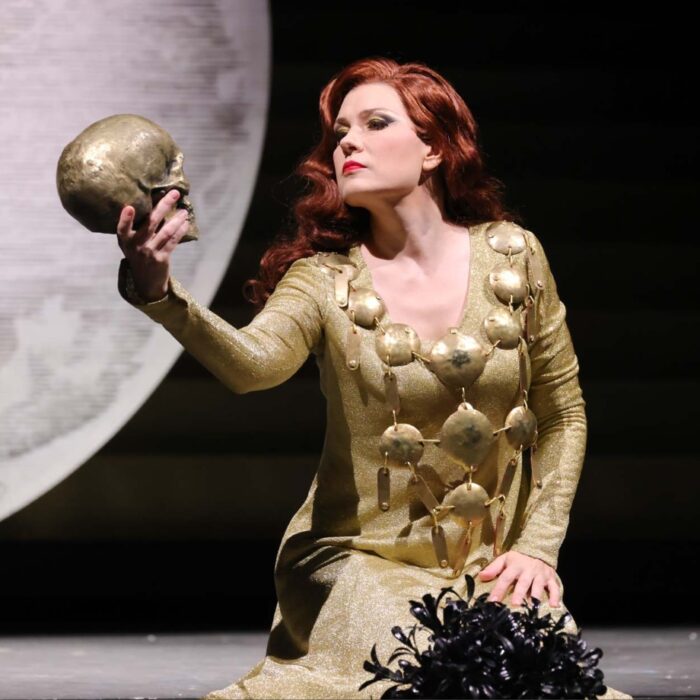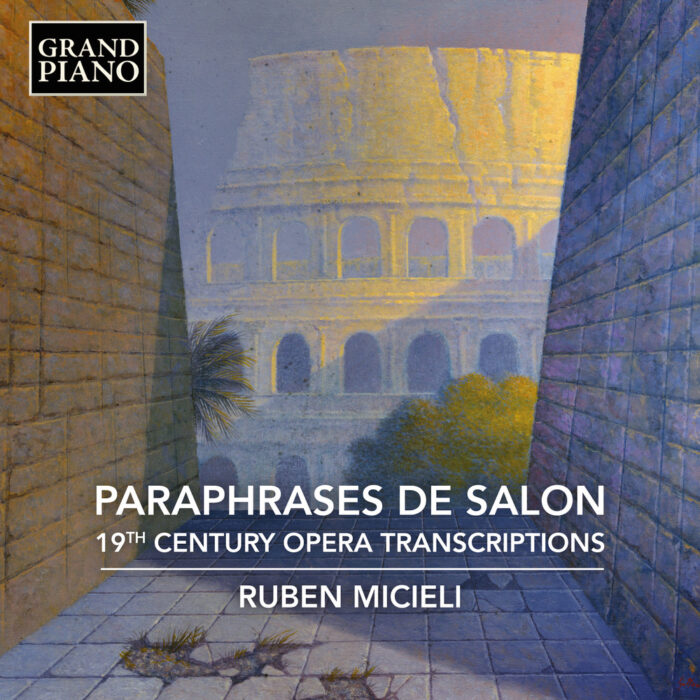
Review: Kasia Głowicka’s ‘Lilian’
A Psychological Masterwork That Will Leave You Begging for the Single Sound of Music
By Polina LyapustinaThis review contains spoilers. The author strongly recommends that you first get acquainted with the work on Spotify, and later come back to the article.
I wish I could start my acquaintance with works of the composer Katarzyna Głowicka with something more tangible—lighter or heavier, whiter or blacker, louder or quieter. With anything else at all.
Kasia’s past commissions include Warsaw National Opera House, La Monnaie, Holland Symfonia, BBC Scottish Ensemble, Ensemble Recherche, Holland Symfonia, and European Contemporary Orchestra. And there is (and hopefully will be) much to say about her works with The Airport Society in Brussels.
But when I start my work with the Polish composer’s piece, I have only read an interview speaking about “Lilian” and then I listened to it immediately.
“The refugee crisis has mostly disappeared from the front pages in Europe but remains a daily struggle for thousands of people.”
The refugee crisis is a difficult topic, and so I presumed that pure emotions would become a sure guide in writing this review. But in fact, it took me two weeks to simply explain—first, to myself—how am I going to convince you to listen to this undoubtedly important yet unbearably difficult piece.
The radio play “Lilian,” which I’m not calling an opera, will show you more horrors of reality than you are used to seeing. This piece makes you discover the weakest and the most frightening parts inside of your self even though it says nothing directly about you.
The music is over.
The plot is based on the WhatsApp messages exchanged between a professor in Europe and a young Eritrean man trapped in a Libyan refugee camp. There is no promise of a happy ending, but you cannot possibly imagine what the biggest challenge in this play will be.
Having been promised to hear an opera, I am painfully waiting for the sounds of music. The narrative unfolds stubbornly and each new message gives no relief. Feeling under pressure, I’m still expecting the music to come and to save us. But the piece is passing fast, and eventually, I’m losing hope.
There’s a lot of weakness and inability in these 25 minutes. Loads of fear and violence, to which we are already accustomed in the modern world. And from which we so easily can escape on daily basis. “You cannot change it, don’t worry,” modern therapists teach us. But here, in “Lilian,” audially present on two continents, we seem to be locked in a room of weakness and despair. We cannot change it, but are also unable to escape.
Why don’t we hear what we expected?
Desperation takes out all the energy and there’s nothing to feed the orchestra on. The only mechanical noise in the background keeps us from falling into silent oblivion. And the weakness of the moment is going through the whole body, so where could the power for singing come from?
This noise, lack of sound, this cry might not be something a composer is supposed to produce. What if it was the only real sound she, Lilian, was able to produce living through this lack of will, of power, of simply breathing in this story.
But then, I see this piece as something almost musical and surely created by a composer. Perhaps, these are the only sounds suitable to expose such conditions.
Hope(less)
Although Katarzyna Głowicka noted that the story illustrates the power of hope and that the two main characters are united by their shared sense of humanity, I could only see this piece revealing that none of our kindest motives can go over the borders and that only the powerlessness unites people in the modern world. We can only sit, and type messages, and wait. And, yes, through this we can find hope and trust.
“Lilian” is a story that might have to be told as a story of hope because nobody wants to hear it simply as it is. And it is one of the first attempts to bring such a difficult and bleak topic into the opera world—the world that seemed to have the right sound for everything before— love, war, betrayal. But this? Nothing sounds right for it.
By the end of my discourse, a bright cross-discipline example comes to my mind. As an experienced graphic designer, I work with empty spaces more often than with objects. White space—black letters, short sentences—it’s all clear. Negative space helps me to focus attention on the words and meanings; it screams “Look, only this matters!” And no decorations are needed.
Kasia Głowicka didn’t want to make it easier, brighter, or more beautiful for us. And therefore, she hasn’t decorated her work. Her awareness is enough—it’s already overwhelming. I believe she craved to bring us a both-sides perspective on the war conflict, in which we all are involved—in our warm beds, or cells—in our common impotence. Only music can awaken and empower us. Music can heal.
Silence is violent. It’s heavy, dark, and merciless. And while humankind is waiting to be saved by a single sound, the silence doesn’t need any reinforcement at all.
Are we ready to hear it?
Categories
Reviews

